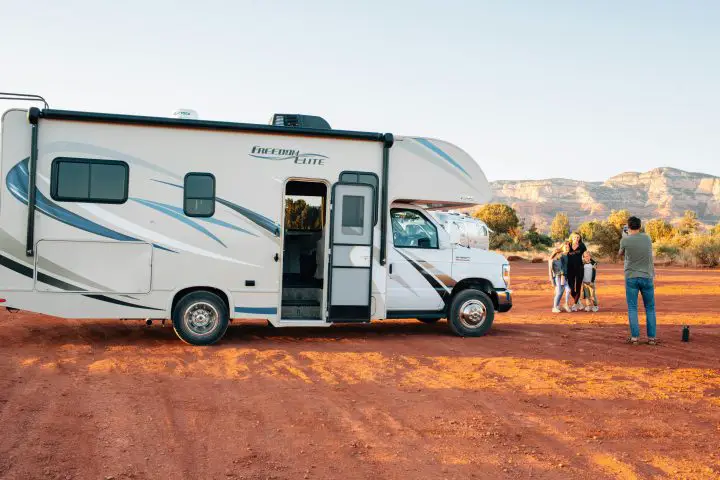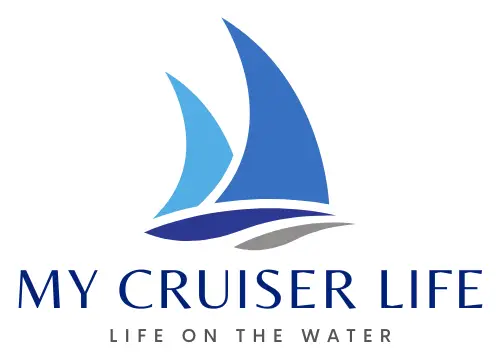Trading a traditional home for life on the move is an increasingly popular dream, but the RV or boat decision requires careful consideration. RVs offer the freedom to explore America’s highways, national parks, and hidden gems with relative simplicity and lower costs. Boats provide access to pristine waterways, secluded anchorages, and coastal adventures that land-based travel simply can’t match. Both lifestyles promise independence and adventure, but they demand different skills, budgets, and mindsets. Understanding the real-world differences between road and water living will help you choose the path that truly aligns with your dreams and capabilities.

Table of Contents
- Lifestyle and Daily Comfort
- Mobility and Freedom
- Safety and Legal Requirements
- Maintenance & Upkeep
- Storage, Parking, and Docking
- Environmental & Sustainability Factors
- Use-Case-Based Recommendations
- Which is Better: RV or Boat?
Lifestyle and Daily Comfort
Living on the road versus living on the water creates dramatically different daily experiences. Your RV interior and boat cabin each offer unique advantages for the mobile lifestyle, but the comfort factors vary significantly.
RV Features:
- Stable platform for cooking, sleeping, and daily tasks
- Larger freshwater tank capacity with easy dump station access
- Superior storage solutions despite narrower width (8-8.5 feet)
- Outside space becomes part of your living area when parked
- Pet-friendly with easy bathroom access for dogs
- Better for families with predictable routines and playground access
- Single-person operation is manageable and straightforward
Boat Features:
- Multi-dimensional living with up to four levels and distinct areas
- A much wider beam (up to 15 feet) creates a more spacious feeling
- The galley is designed for constant motion but requires sea legs
- Water makers can convert salt water to fresh water
- Intimate, cozy atmosphere perfect for couples
- Blackwater pumping requires specialized marine facilities
- Constant gentle motion affects everything from cooking to sleeping
The biggest difference? RVs offer stability and simplicity for daily routines, while boat cabins provide more dramatic living spaces but demand constant adaptation to motion. Both lifestyles require careful freshwater tank and blackwater management, but boats generally need more hands-on system management. For solo travelers, RVs win on ease of operation, while couples often prefer the unique intimacy of boat living.
Related: Can You Live on a Boat? The Complete Beginner’s Guide
Mobility and Freedom
RV travel freedom versus boat mobility offers completely different exploration experiences. Your choice determines whether you’ll cruise highways or navigate waterways for your adventures.
RV Travel Advantages:
- Access to 46,000+ miles of the interstate highway system coast-to-coast
- Boondocking opportunities on BLM land, national forests, and Walmart parking lots
- Easy access to remote hot springs, desert gems, and mountain towns
- RV parks in every state with flat rates regardless of rig size
- Simple learning curve – motorhomes drive like large vans
- Weather-independent travel (except severe storms)
- Abundant free and low-cost camping options
Boat Mobility Features:
- Waterway access via ICW (Intracoastal Waterway) and inland systems
- Anchoring out in pristine, secluded locations inaccessible by land
- Reach remote islands, hidden coves, and coastal areas
- Marina infrastructure with specialized services and amenities
- Complex navigation requiring marine engine and sailing expertise
- Weather-dependent travel planning and safety considerations
- Higher skill requirements for safe operation and mooring
The fundamental trade-off? RVs provide broader geographic freedom with easier navigation, while boats offer unique waterfront destinations with more operational complexity. Boondocking and anchoring out both deliver free, scenic stays, but finding good anchorages requires more skill than locating RV camping spots. For inland mobility, RVs win hands down, but boats excel at water-based experiences you’ll never see from any highway.
Safety and Legal Requirements
Legal compliance varies dramatically between RVs and boats, with boats requiring significantly more training and federal oversight than RVs.
RV Legal Requirements:
- A regular driver’s license is sufficient for most RVs
- CDL is only required for the largest motorhomes in some states
- Simple DMV registration, like car registration
- DOT safety standards focus on road safety basics
- State-level inspections (when required) check roadworthiness
- Local/state police enforcement with traffic-type violations
- Standard fire extinguishers and automotive safety equipment
Boat Legal Requirements:
- Mandatory boating safety course and certification in most states
- California Boater Card required as of January 2025
- A captain’s license is needed for larger vessels and commercial operations
- State DMV registration plus potential U.S. Coast Guard documentation
- Coast Guard-approved Personal Flotation Devices for each person
- Extensive safety equipment: flares, sound signals, visual distress signals
- Voluntary Coast Guard safety inspections are highly recommended
- Federal enforcement with serious penalties for violations
The bottom line? RV safety standards are straightforward and familiar, while boating laws vs RV laws are more complex and carry heavier consequences. Maritime law means boat owners need much more diligent compliance than RV owners. If you can drive a car, you can legally operate most RVs, but boats require specialized education and ongoing attention to federal safety requirements.
Maintenance & Upkeep
Engine complexity and maintenance requirements differ dramatically between RVs and boats, with marine environments creating significantly more challenging upkeep demands.
RV Maintenance Features:
- Standard truck/van engines are serviceable at thousands of shops nationwide
- Simple water systems with straightforward freshwater tank and dump station access
- Basic body maintenance: wash, wax, check roof seals
- Generator service is available at RV dealers and automotive shops
- DIY-friendly winterization process takes just a few hours
- YouTube tutorials and basic tools handle most routine maintenance
- Maintenance costs around $1,000-$2,000 annually
Boat Maintenance Challenges:
- Specialized marine engines requiring expert diesel engine and saildrive knowledge
- Complex water systems with through-hull fittings that could sink your vessel
- Hull care includes bottom paint, zinc anode replacement, and osmotic blister prevention
- Marine generators need specialized parts unavailable everywhere
- Professional winterization costing hundreds or thousands of dollars
- Specialized tools and knowledge are required for safe repairs
- Significantly higher maintenance costs due to the marine environment and complexity
The reality check? Boats cost significantly more to maintain, with real-world data showing couples spending $50k+ on boat maintenance versus a much lower RV repair frequency. The marine environment’s salt water, humidity, and constant motion create maintenance challenges RVs simply don’t face. While RVs offer DIY-friendly upkeep, boat maintenance often requires professional expertise, where mistakes could sink your home.
Storage, Parking, and Docking
Storage solutions reveal dramatic cost differences, with boat storage typically running 3-5 times more expensive than comparable RV storage options.
RV Storage Options:
- Outdoor uncovered storage: $75-$150 monthly
- Covered RV storage: $125-$200 monthly
- Indoor storage: $150-$400+ monthly
- Home storage is often possible, eliminating costs entirely
- Straightforward access – drive to facility, hook up, and go
- Flat-rate pricing regardless of RV size at most RV parks
- Many facilities allow owner maintenance and modifications
Boat Storage Costs:
- Rack storage for 25-foot boat: $2,500-$3,000 per season
- Marina slip fees: $3,000-$4,000 summer season
- Dry dock storage requires massive equipment and boat yard space
- Marina slip prices: $20-$30 per foot monthly ($750/month for 30-footer)
- Winter storage costs often equal or exceed summer slip fees
- Complex logistics requiring travel lift scheduling and advance payment
- Additional utility fees for electricity, water, and pump-out services
The math is brutal – a 30-foot boat at $25 per foot monthly costs $9,000 annually just to park, while RV parks charge $30-50 per night only when you’re using them. Boat storage at home requires waterfront property or trailer logistics, while many RV owners can store rigs in driveways. Marina amenities come with additional fees, unlike RV parks, where pools and activities are typically included.
Related: Cheapest Place to Live on a Boat
Environmental & Sustainability Factors
Environmental impact varies significantly, with boats operating in sensitive marine ecosystems while RVs offer more sustainable off-grid opportunities.
RV Environmental Profile:
- Motorhomes average 5-10 MPG with predictable fuel planning
- Greywater system dumps at municipal treatment facilities
- Excellent off-grid capacity on BLM land and national forests
- Solar panels have more roof space and avoid salt spray damage
- LED lighting and efficient appliances reduce energy consumption
- Lower-toxicity maintenance using standard automotive products
- Leave No Trace principles minimize land-based impact
Boat Environmental Challenges:
- Marine fuel consumption measured in gallons per hour (20-50 GPH)
- Operating in sensitive marine ecosystems with immediate impact risk
- Complex waste disposal through marina systems of varying quality
- Solar panel installation complicated by rigging and mast shadows
- Hull maintenance requires toxic bottom paints and marine solvents
- Anchoring can damage seagrass beds and marine habitats
- Even biodegradable soaps can harm aquatic environments
Both lifestyles can be more sustainable than traditional housing, but boats require more careful environmental management. While boats generally last longer with proper maintenance, their direct interaction with sensitive marine ecosystems demands greater responsibility. RV boondocking offers minimal environmental impact when following sustainable travel practices, while boats need specialized green boating techniques to protect waterways.
Use-Case-Based Recommendations
Choose an RV if you:
- Want maximum geographic flexibility
- Prefer predictable costs and simpler maintenance
- Plan to travel solo or with pets
- Need reliable internet for remote work
- Want easier access to family and healthcare
- Prefer the social aspects of campgrounds and RV parks
Choose a boat if you:
- Love being on the water and don’t mind the learning curve
- Have a higher budget for purchase and ongoing costs
- Want access to unique waterfront destinations
- Enjoy the technical aspects of boat ownership
- Prefer smaller communities and waterfront lifestyle
- Don’t mind more complex logistics for travel and maintenance
Which is Better: RV or Boat?
There’s no wrong choice—only the choice that’s right for YOU. RVs unlock America’s breathtaking diversity with simpler ownership and lower costs. Boats offer magical water experiences worth every extra dollar and challenge. Can’t decide? Start with an RV’s forgiving learning curve, then follow your heart to the water if it calls. Whether you’re chasing sunsets on highways or horizons on open seas, you’re choosing freedom over convention. Both paths lead to extraordinary adventures and communities of kindred spirits. The real question isn’t which is better—it’s which dream makes your soul come alive. Choose boldly.
